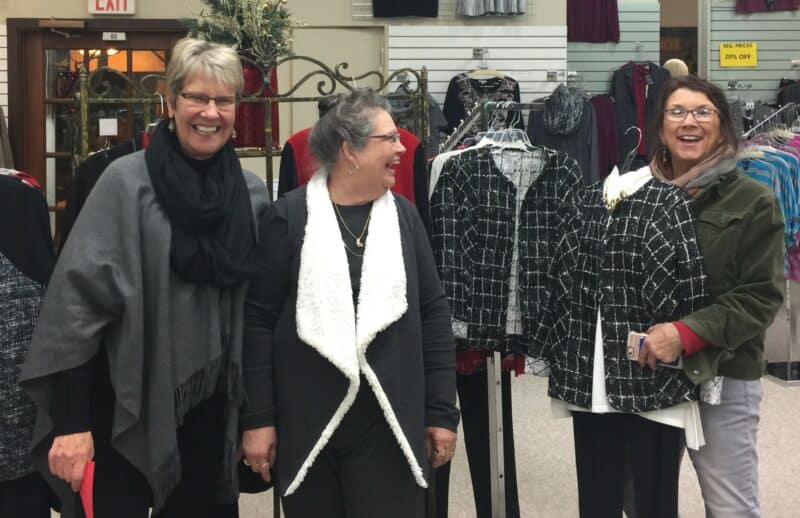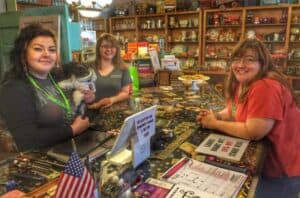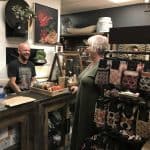
These Webster City, Iowa, business owners get together informally to share and support each other. That’s the basic model also used by Shop Hopping Around Brownsville. Photo by Deb Brown.
Getting local businesses to cooperate can be a challenge in any small town. Everyone is busy in their own business, and few have time to dedicate to working with other businesses.
Whether it’s a formal project put on by a group like the Chamber of Commerce or an informal get-together, there are big benefits from local businesses connecting with each other. So how do we get them to do it?
One of our readers Yolanda Almaguer wrote about her local group in our comments.
I’m from Brownsville, Texas, and we have a Small Business Group that we call Shop Hopping Around Brownsville. We get together once a month at everyone’s location for about an hour on the first Monday of the month.
We have a couple of re-sale shops, a baker, restaurants, massage therapist and boutiques.
How can you get busy store owners to find time to cooperate? Let them set the time and keep it informal. Photo by Deb Brown.
We get to see what the others have to offer, where they’re at and we sometimes end up buying from each other. Plus we get to send our customers over when in search of a particular item especially because we know firsthand that this particular business has it. That is the only time we get to see each others place of business. We’re all busy, and our hours of operation are usually at the same time.
It works for us. We don’t charge dues, we do our own ribbon cuttings, we invite people over and have a great event for that occasion. In numbers we were able to buy an ad with Brownsville Convention and Visitors Bureau, we have flyers made listing us all, and we have our business cards at every ones business location. It just helps in promoting each other. We started this 3 years ago. This year as a group we were also able to get our city to issue a proclamation in recognizing and making Small Business Saturday an official Day in Brownsville. :)
The only stipulation for joining our group is that the business be in Brownsville and they must have a business location that is not their home. That means they took the extra step and are paying rent, taxes, etc. etc.
I think several factors make this model work so well
- It’s informal. No dues, no officers, very little overhead of keeping it going.
- They meet in business back rooms. That taps our human curiosity to draw people in.
- There’s power in numbers. They can do things together that no one business could do alone.
- The conversation supports informal learning. I’m sure that people use this chance to ask each other questions about business and get answers to their most pressing issues.
In Webster City, Iowa, three local businesswomen started meeting informally. Two were experienced retailers, one was starting a new retail business. Those informal mostly backroom sessions supported the new business and strengthened the existing businesses.
I’m starting to see this informal “shop hopping” backroom model as a better solution to almost all projects that call for the cooperation of local businesses.
New to SmallBizSurvival.com? Take the Guided Tour. Like what you see? Get our updates.
- About the Author
- Latest by this Author
Becky started Small Biz Survival in 2006 to share rural business and community building stories and ideas with other small town business people. She and her husband have a small cattle ranch and are lifelong entrepreneurs. Becky is an international speaker on small business and rural topics.











